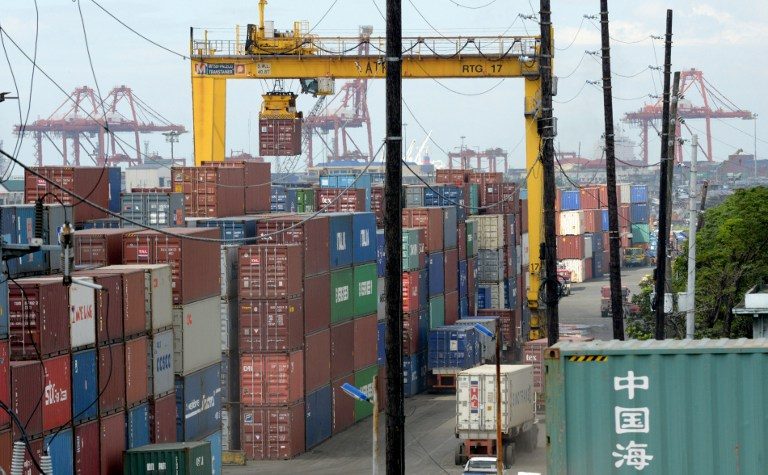SUMMARY
This is AI generated summarization, which may have errors. For context, always refer to the full article.

MANILA, Philippines – After a probe into how billions of pesos worth of shabu made it past the Bureau of Customs (BOC), the House committee on dangerous drugs recommended “replacing” the bureau with another agency and mulled the “privatization of non-sovereign functions.”
“Pass a legislation to replace the Bureau of Customs by a new revenue collection agency or instrumentality of government with different system of collection to avoid corruption and to increase revenue collection. A system may include fixing a one-time payment of import/export fees that would include duties/taxes, storage, warehousing, arrastre services and all expenses relative to importation/exportation. Strengthen border control function while providing for utmost convenience in the flow of goods,” reads the report from the committee headed by Surigao del Norte 2nd District Representative Robert Ace Barbers.
It adds: “The system may consider privatization of non-sovereign functions which will be part of an extensive study to be conducted by the Department of Finance.”
The committee, however, did not elaborate on how the proposed BOC “replacement” would happen.
But a lawmaker who is more familiar than most with the problematic bureau said it’s premature to think of one solution to the Customs mess.
“The inquiries have only scratched the surface of what ails the BOC, and what have been seen are just the symptoms and manifestations of the sickness of the agency,” said Muntinlupa Representative Rozzano Rufino “Ruffy” Biazon, a member of the House committee on dangerous drugs and former BOC chief.
Biazon headed the BOC under former president Benigno Aquino III from 2011 to 2013.
During his term, Aquino criticized the BOC over continuing reports of corruption and ineptness. Biazon, in turn, called on politicians to stay away from the bureau, blaming them for perpetuating corruption.
Biazon had resigned from the BOC in 2013 after he was implicated in the so-called pork barrel scam. The case is still ongoing.
“I would caution against prescribing a cure without fully knowing and understanding the roots of the symptoms and manifestations through an in-depth study of the conditions inside the agency and its processes and procedures,” he said.
“As the country has experienced in the past, solutions have been imposed on the BOC which have not yielded the ideal outcomes, not because the ideas were bad, but simply because they did not directly address the root cause.”
Biazon urged the House to review an earlier resolution that sought an inquiry into the status of the bureau’s automation program.
“Although the BOC is already computerized, there is a need for upgrading and plugging the loopholes in the current system. I have also filed other bills and resolutions directed at effecting reform in the bureau,” he said.
The BOC, long plagued by issues ranging from corruption to inefficiency, again grabbed the spotlight after 3 different congressional committees launched probes into the smuggling of illegal drugs from China.
Nicanor Faeldon, the first BOC chief under the Duterte administration, was criticized for introducing changes that lawmakers said made the process more vulnerable to corruption and abuse. The House committee on dangerous drugs recommended the filing of charges against Faeldon and his appointees, most of whom were former soldiers like him.
The panel also recommended the revocation of several Faeldon-issued memorandum orders on top of suggestions to improve existing systems.
Despite the criticism against Faeldon, President Rodrigo Duterte maintained that his appointee is not corrupt. The President did, however, accept Faeldon’s resignation. He was replaced by Isidro Lapeña, former Philippine Drug Enforcement Agency (PDEA) chief.
Duterte, back when he was Davao City mayor, had also floated the possibility of “privatizing” the BOC.
The probes – by the House committee on dangerous drugs, House committee on ways and means, and the Senate blue ribbon committee – uncovered the persistence of corruption in the BOC, through brokers, fixers, and officials.
Duterte’s own son, Davao City Vice Mayor Paolo Duterte, and son-in-law, Manases Carpio, were name-dropped several times in congressional hearings because of their links to the so-called “Davao Group.”
The President advised his son to attend the Senate probe but to stay “silent.” – Rappler.com
Add a comment
How does this make you feel?
There are no comments yet. Add your comment to start the conversation.